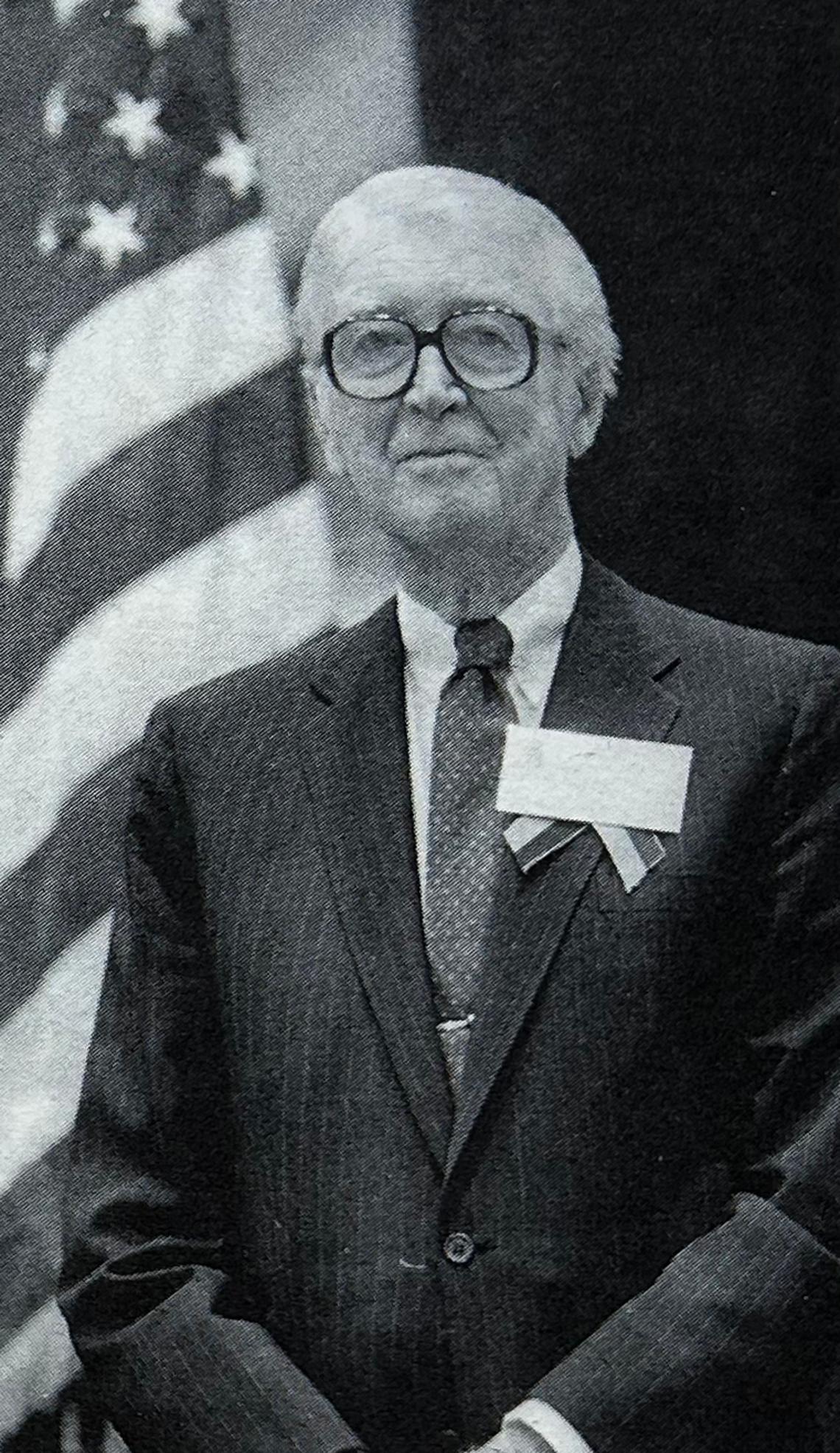
If there was ever any doubt who is Princeton’s best-known and most revered alumnus, the Alumni Day festivities this year should put the question to rest. To be sure, the nearly three thousand alumni and friends who crowded the campus on the weekend of February 24 also came back to Princeton to hear faculty lectures, to attend the annual winter meeting of the Alumni Association, and to wander around the campus. But for many of them, the main attraction was the legendary Jimmy Stewart ’32, the recipient of this year’s Woodrow Wilson Award.
Seats for Stewart’s first lecture, held in Alexander Hall, sold out so fast that an unprecedented second lecture was slated for the afternoon, in McCosh 50. That one sold out as fast as the first had. Indeed, in the week before Alumni Day, tickets to either of the Stewart lectures became jealously guarded commodities—especially after the local media got wind of Stewart’s arrival. The university eventually scheduled a “media availability” with Stewart on the Friday before Alumni Day, a pack of reporters and crews from at least six area television stations showed up. The tremendous interest of the New York and Philadelphia stations seemed to surprise even the star himself. "I've been out of pictures for quite a while,” Stewart observed. He paused. “But I have just published a little book of poetry.”
Although Stewart himself was certainly the headliner, there was plenty of other action around the campus—the annual service of remembrance, receptions, lectures, and showings of films starring Jimmy Stewart. As usual, the largest meeting of all was the luncheon in Jadwin Gym, where James C. “Poss” Parham, Jr., ’52, president of the Alumni Association, convened the organization’s seventy-fifth winter meeting. Parham also presented the university’s highest awards for alumni and undergraduates.
Woodrow Wilson Award
In his talk on Alumni Day, Jimmy Stewart apologized for not being an especially dedicated alumnus—his record for attending Reunions, he admitted, “is terrible.” Perhaps mindful of this, the university exacted a measure of revenge when Stewart arrived in town to accept the Wilson Award. They packed his schedule with appearances. From a press conference on Friday through two speeches and lunch on Saturday, Stewart was kept busy. Everywhere he went, audiences greeted him with an astonishing level of emotion and feeling; throughout it all, he maintained his famous sense of humor.
A sample of the Jimmy Stewart wit, circa 1990. Asked his opinion of the addition of women to Princeton, Stewart hesitated in his trademark manner and then replied, “Well I sort of like the addition of women anywhere.” At the afternoon lecture, an undergraduate woman asked him about his eating club (he belonged to Charter) and “to tell us a wild and crazy college story.” Again the signature pause as he considered how to answer. Then a yes, but “not for here.” If the aisles hadn’t been full of spectators, people would have been rolling in them. Asked if his role in Mr. Smith Goes to Washington had interested him in a political career, Stewart said no. “I can’t talk fast enough to be a politician.”
Stewart spun other tales—about the accordion that got him involved in the Triangle Club (and. By implication, into show business); about the colorization of black-and-white films (a “disgrace”); and on his academic record at Princeton (“I was a terrible student,” he said. “I had decided to major in engineering, which turned out to be a terrible mistake. College algebra was like”—pause—“like a death blow”). He told stories about the making of It’s a Wonderful Life and about working with Grace Kelly. He had lunch with undergraduates and alumni who have held the James Stewart Scholarship, given in honor of his father, Alexander Stewart 1898, and he toured the university’s recently renovated film and theater and dance facilities.
In presenting Stewart with the Wilson Award, James Henderson ’56, chairman of the executive committee of the board of trustees, lauded the actor as “One of Princeton’s greatest ambassadors, an ambassador of goodwill.” He also noted that Stewart was one of the very few Princetonians to have pulled off “the orange and black hat trick”—to win the Wilson Award, serve as a trustee, and receive an honorary degree.
This was originally published in the March 21, 1990 issue of PAW.










0 Responses